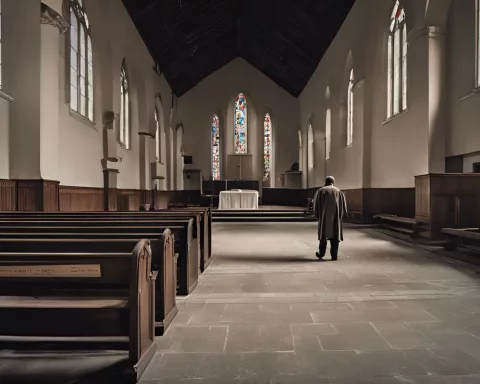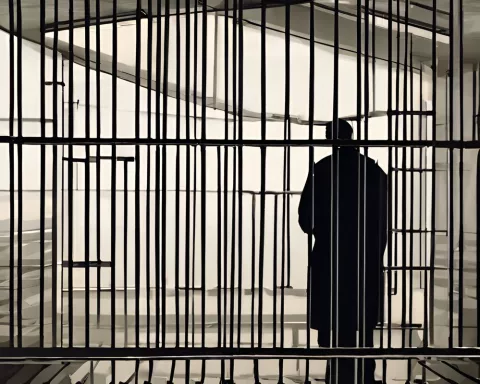Paralympic athlete Oscar Pistorius, who was convicted of killing his girlfriend Reeva Steenkamp in 2013, is up for parole after completing half of his 13-year prison term. The Correctional Supervision and Parole Board will decide if Pistorius is ready for social reintegration and determine his placement date if he is granted parole. Reeva Steenkamp’s mother won’t be attending the parole hearing, but her victim impact statement will be read by advocate Annade Thiart-Hofmeyr.
Will Oscar Pistorius be released on parole?
According to the Correctional Services Act, an inmate becomes eligible for parole after completing half of their term. Pistorius’s parole hearing is slated for 24th November, where the Correctional Supervision and Parole Board will determine if he is prepared for social reintegration and decide on his placement date if he is deemed ready for parole.
Parole Hearing on the Horizon
Ex-South African Paralympic sporting star, Oscar Pistorius, who was found guilty of killing his girlfriend Reeva Steenkamp in 2013, is back in front of the parole board. The parole hearing slated for 24th November might determine if Pistorius will serve out the remainder of his 13-year prison term or make moves towards prospective liberation.
Speculation about Pistorius’s potential parole began circulating as early as 20th March of this year. Pistorius, in his former applications, asserted that he had served his time. He contended that he had been incarcerated long enough to qualify for parole based on the existing legal provisions. Pistorius’s firm posture was continuously met with a resistant response from the parole board. The board asserted that Pistorius had not fulfilled the required minimum custodial term as declared by the Supreme Court of Appeal (SCA). This resulted in his previous parole applications being rejected, leading to a series of legal disputes and decisions that obscured the timeline of his actual sentence.
The Victim’s Mother and the Parole Hearing
Reeva Steenkamp’s mother, June, has been keenly observing the case through her lawyer, Tanie Koen. In a recent interview with News24, Koen revealed that June won’t be attending the upcoming parole hearing. Instead, her victim impact statement, a poignant account of the sorrow and loss endured by those left behind, will be read by advocate Annade Thiart-Hofmeyr.
The parole hearing for Pistorius comes after the Constitutional Court confirmed that his sentence started on 6 July 2016, and not on 24 November 2017. The later date was when his sentence was increased to 13 years and five months by the SCA. In a comprehensive four-page ruling, the court clarified that Pistorius had been eligible for parole since March 2023. According to Section 73(6) of the Correctional Services Act 111 of 1998, an inmate becomes eligible for parole after completing half of their term.
The Role of the Correctional Supervision and Parole Board
Singabakho Nxumalo, the spokesperson for correction services, announced on Monday that the Correctional Supervision and Parole Board (CSPB) for Kgosi Mampuru II Management Area would be examining Pistorius’s profile on 24th November. Nxumalo underscored the impartial nature of the proceedings, asserting that the CSPB would carry out its operations according to the procedure manual. The goal would be to assess whether the inmate is prepared for social reintegration.
Nxumalo further explained that the CSPB would also determine the placement date should the inmate be deemed ready for parole placement. He emphasized that predicting the potential outcomes of the proceedings is not within the remit of the Department of Correctional Service. The Correctional Supervision and Parole Board, he insisted, must be permitted to carry out its duties free from any undue pressure or influence.
Pistorius is currently serving his sentence at Atteridgeville Prison, situated west of Pretoria. The impending parole hearing signals the next stage in this unfolding story, as the world eagerly watches and waits to discover the outcome for the once-feted sportsman.
1. Will Oscar Pistorius be released on parole?
According to the Correctional Services Act, an inmate becomes eligible for parole after completing half of their term. Pistorius’s parole hearing is slated for 24th November, where the Correctional Supervision and Parole Board will determine if he is prepared for social reintegration and decide on his placement date if he is deemed ready for parole.
2. What is the parole hearing about?
The parole hearing is to determine if Oscar Pistorius is ready for social reintegration and to decide on his placement date if he is granted parole.
3. Why has Oscar Pistorius been denied parole in the past?
Oscar Pistorius’s previous parole applications were rejected by the parole board because he had not fulfilled the required minimum custodial term as declared by the Supreme Court of Appeal (SCA).
4. Will Reeva Steenkamp’s mother attend the parole hearing?
Reeva Steenkamp’s mother, June, will not be attending the upcoming parole hearing. Instead, her victim impact statement, a poignant account of the sorrow and loss endured by those left behind, will be read by advocate Annade Thiart-Hofmeyr.
5. What is the role of the Correctional Supervision and Parole Board?
The Correctional Supervision and Parole Board (CSPB) will examine Oscar Pistorius’s profile on 24th November and determine if he is prepared for social reintegration. The CSPB will also determine the placement date should he be deemed ready for parole placement.
6. Where is Oscar Pistorius currently serving his sentence?
Oscar Pistorius is currently serving his sentence at Atteridgeville Prison, situated west of Pretoria.












